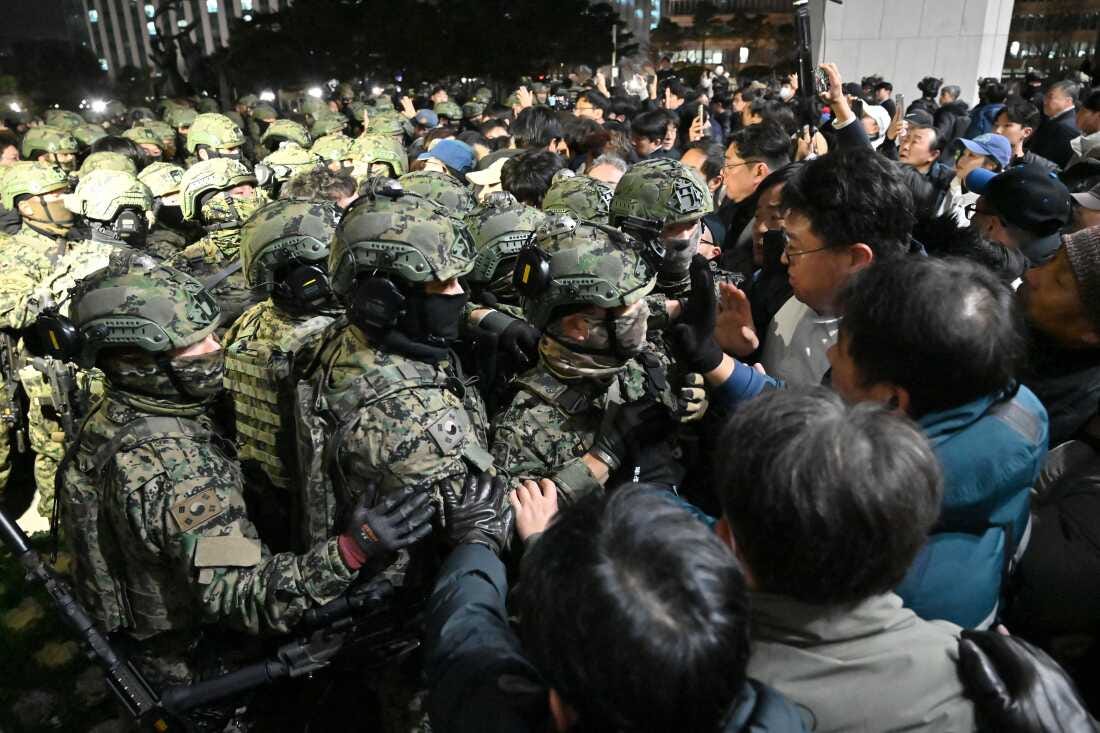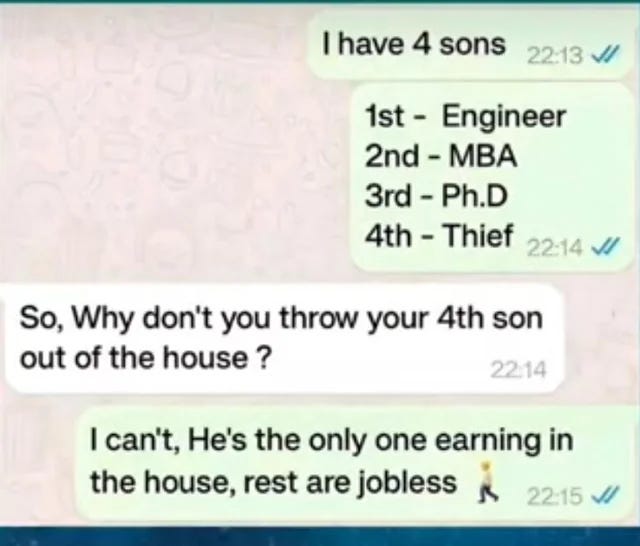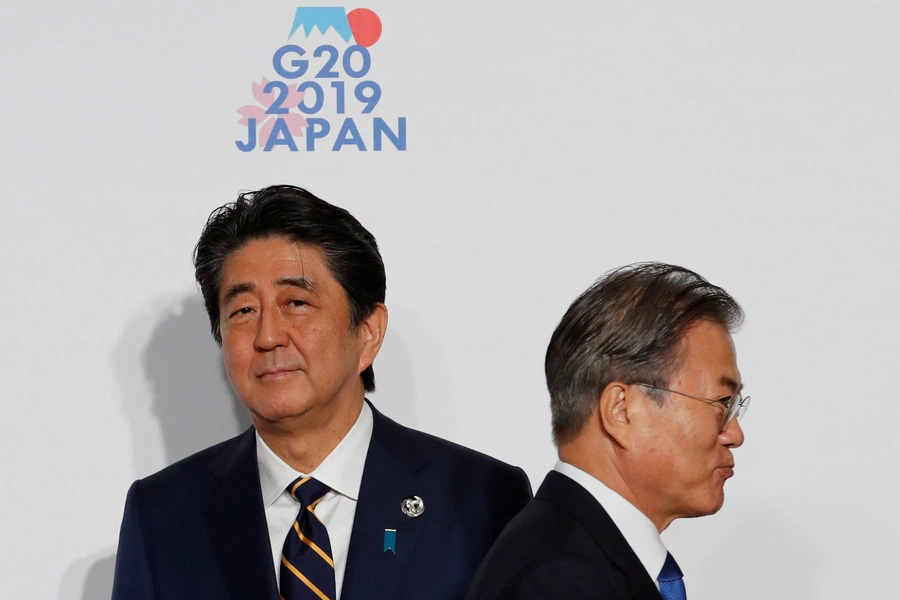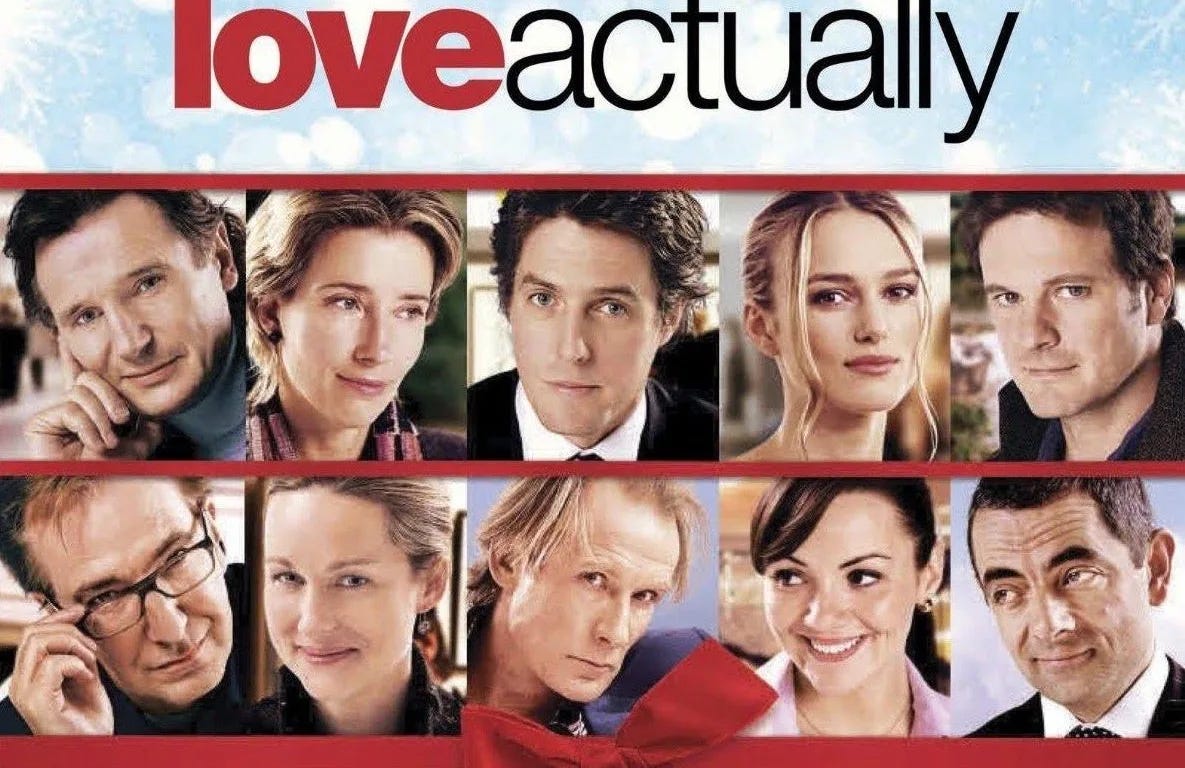Bonus Perspectives: The Value of a PhD, South Korean President Impeached, Mike Waltz, and "Love Actually"
Cultural war controversy over PhDs, what Yoon Suk-yeol's failed martial law means for relations with Japan, and your weekly media recommendations.

Bonus Perspectives is a weekly column series containing my thoughts on the latest international news and Japanese news, as well as film, television, music, book, and video game recommendations. It’s free for all subscribers to this Substack, but if you enjoy my writing, consider opting for a paid subscription. Doing so will give you access to exclusive in-depth pieces and my entire backlog of work. Your support is greatly appreciated!
Take 20% off from now until the end of January.
My health and year-end plans
You may have noticed that things have somewhat slowed down here at Foreign Perspectives. By mid-November I came down with a fever which turned into an extended cold lasting for the better part of a month. Between cramming for a semester presentation, spending long hours at a part-time job I don’t like standing outside in the blistering cold, not getting enough sleep, and being under more stress than I would like, it’s no surprise that my immune system decided to give up the ghost.
I thought I had gotten out of it two weeks ago, but lo and behold, I came down with another fever and had to once again take things easy. I probably jumped the gun in returning to my usual jogging routine before being fully recovered. I’ve lost a lot of weight this year through diet and increased exercise, so it sucks having to dial back on my physical activity. My part-time job isn’t helping matters, but as I’m currently under an NDA I can’t really get into much more detail. Perhaps a story for another time after I quit at the end of January. While I don’t want to jinx it, fingers are crossed that I’ve gotten through the worst of my ailments.
That brings us to a housekeeping update on what shape this Substack is going to take for the rest of the year. I initially wanted to do a new entry of my column series A Bit of Film and War for November, but obviously that date has passed. There likely won’t be one this month either because of other pieces I’m late on, so expect that column to return in January. After this week, I will take another week off as I have a trip planned with my wife for the holidays. Before the year comes to a close, there will be a special edition of Bonus Perspectives going over my best pieces and personal highlights of 2024.
Regarding paid content, I once again encourage readers of Foreign Perspectives to upgrade their subscription if they can. As I’ve said before, 2025 will have me switching completely to remote work as a freelance journalist for income. That means I’ll be even more reliant on your support to keep this a viable enterprise. A paid subscription helps me keep the lights on and will give you access to exclusive, in-depth pieces. Until the end of January I’m currently running a 20% off sale, so take advantage of it while you can.

The next article for paid subscribers will be the third and final part of my column series detailing a journey I took earlier this year through key personal destinations in Japan. The first two parts covered my experiences in Yokosuka and Yamaguchi, so check them out if you haven’t already. They contain many photos and personal anecdotes while highlighting some very underrated destinations. Besides that, I have a couple of other pieces for paid subscribers that will be out in January, so stay tuned for updates. We’re in the home stretch of 2024 and I couldn’t be happier with the growth Foreign Perspectives has experienced, so once again from the bottom of my heart, thank you to everyone who has supported my work.
I appreciate your patience and understanding amid my health issues, but 2025 will be back to a regular posting schedule. Without further delay, let’s get into this week’s edition of Bonus Perspectives.
The Culture War on PhDs
I normally don’t have much interest in commenting on culture war BS that makes the rounds on Twitter (or X), but this is a topic that I’m personally familiar with. Two weeks ago, a woman named Ally Louks posted a smiling photo of her newly-completed PhD. I imagine that she thought her tweet would come and go with the expected congratulations from her peers, but it instead became embroiled in an explosion of controversy. At over 12,000 replies, 20,000 retweets, and 250,000 likes, it’s probably safe to say that Louks went viral in circles she likely never intended to.
With the thesis title being “The Politics of Smell in Modern and Contemporary Prose,” it’s the kind of esoteric dissertation you would come to expect from someone pursuing a doctorate in English literature. Whether the thesis is insightful research or just impenetrable academic gobbledygook (I haven’t read it), the niche topic sparked fierce debates over the “value” of a PhD amid the thousands of heated replies and quote retweets. To Louks’ credit, she handled the whole situation with class and did not make a scene despite numerous death threats and harassment sent her way.
Many on the right criticized Louks for dedicating years into a “useless degree” and strongly questioned the value of pursuing a PhD in the humanities. Many on the left came to Louks’ defense and expectedly turned it into a gender issue. This back-and-forth discourse went on for a couple of weeks with both sides largely talking past each other, so I decided not to weigh in until now. As someone currently pursuing a PhD, I believe that I have some relevant experience around this topic. Did Louks really waste all of her time on a useless piece of paper? Or is there “value” to what she wrote about? Expectedly, my position around the worth a PhD is the boring centrist one — which is that it’s complicated.
Let’s get the most obvious out of the way first — a PhD is not a marker of one’s intelligence. Some of the smartest people in the world never finished high school, while you can find plenty of individuals holding doctorates who will astound you with their lack of common sense. All a PhD really means is that someone dedicated multiple years toward researching a topic and that what they wrote is an original contribution to a specific field. That can be anything from challenging orthodoxy, coming up with a new analysis previous scholars never considered, or shedding light on a subject that has little existing literature around it.
The main debate is over what practical use a PhD has. By itself, Louks’ dissertation on the politics of smell is unlikely to cure cancer, provide a viable alternative to fossil fuels, or solve the conflict between Ukraine and Russia. Then again, neither are most dissertations even in STEM fields. Dissertations in topics like pure mathematics or evolutionary biology, which most on the right would probably consider to be more “useful” than English literature, are almost all theoretical and seldom read by anyone outside of those respective fields. The writing is often just as dense and might as well be written in Mandarin Chinese for the outsider layman.
This is not to say that all PhDs or academic disciplines are created equal. My Spectator colleague Douglas Murray has written many articles and multiple books on just how unhinged disciplines like critical race theory are in certain pockets of academia. The last couple of years were notable because a lot of that bunk escaped the walled gardens of university campuses and became part of real-life debates as much of the Anglosphere entered this bizarre era of over-correction in the wake of George Floyd’s death in 2020.
But I digress. The PhD I’ve been working on for the last three years is in international relations. Neither STEM nor the humanities, IR falls into the social sciences which I suppose one can consider to be somewhere in between. My dissertation is about how nationalistic rivalries between Japan and South Korea impede cooperation on North Korea, a country that has historically been the enemy of both. On paper, Tokyo and Seoul should have the same level of threat perception toward Pyongyang, but in practice this is not always the case.
I’m not writing my dissertation to change the world. Instead, I’m aiming to provide some hopefully novel insights into complex geopolitical issues which will continue to affect Northeast Asia for decades to come. A fair question to ask is how any of this will get me a job. After finishing my PhD, I intend to move on to a postdoc and eventually gain full-time employment at a Japanese university. With that providing stability, I will continue to write academic papers, articles for general audiences like the one you are currently reading, and eventually books which will hopefully allow me to take in additional income on the side.
Note that the PhD is merely one step in my overall career plans. Completing it will be a professional marker that I can move on to the next stage, but I’m also developing qualifications in other areas. I already have an audience that reads my work on this Substack and professional outlets have been commissioning me to write pieces for them which pay decently well. Whether you have a PhD in hard sciences or underwater basket-weaving, what matters the most is that you have the marketable skills which can lead to a viable living. Could I be making more money if I specialized in a STEM field? Perhaps, but as someone terrible at math, I instead chose an area that was more suitable to my interests and abilities.
Until last month, I had no idea who Ally Louks was and I frankly don’t even care about her dissertation. The only thing this controversy has done is draw even more attention to her work, which otherwise would have languished in obscurity. Those bashing her are frankly missing the forest for the trees as it seems that she’ll do fine career-wise at Cambridge. I don’t take any particular issue with the subject she chose and if people are so inclined, they can debate and critique her work like any other piece of academic writing. It’s up to the wider world of academia and public discourse to decide if it holds any worth or not.
I don’t think that Louks herself is doing a particularly good job of disproving the stereotype that academics are out of touch with normal people. On the other hand, her thesis was never really intended to be read by anyone outside of her niche circles. What we’re seeing is essentially two worlds colliding and the inhabitants of both speaking different languages, which is why they can’t get on with each other. As someone who writes about everything from geopolitics to video games, I’ve personally tried to be a bridge between both the academics and the normies. In general though, these are two very separate realms that seldom cross-pollinate. The failure to communicate should be expected.
What South Korean President Yoon Suk-yeol being impeached means for Japan
This is an ongoing story that is inevitably going to require an update, and I plan on doing more in-depth analysis when further developments unfold into the new year. Earlier this month, South Korean President Yoon Suk-yeol declared martial law in a strange move echoing the country’s dark days of military dictatorship. His reasons were ostensibly to root out “anti-state” elements from the rival Democratic Party, which he accused of sympathizing with North Korea. Yet despite Yoon’s actions, the country’s parliament immediately voted against martial law and the order was swiftly ended hours later.
After that, the first attempt at impeaching Yoon failed due to a lack of votes, but the second attempt passed. South Korea’s Constitutional Court has 180 days to decide if Yoon will be removed from power, but I would bet dollars to doughnuts that this is going to be the most likely outcome. Following this, an election for a new president is required within 60 days, and the liberal opposition Democratic Party led by Lee Jae-myung would undoubtedly win amid the intense societal backlash against Yoon’s conservative People Power Party.

I should preface by stating that I am not an expert on domestic South Korean politics. With my field being international relations, however, I do think I’m qualified to discuss what all of this means for Japan. Despite his faults, Yoon was one of the most pro-Japan leaders South Korea had in years. For the uninitiated, conservative Korean politicians tend to be pro-Japan and pro-U.S. while being anti-North Korea and anti-China. In contrast, progressive Korean politicians stress reconciliation with North Korea, a harmonious relationship with China, and have views ranging from cooperation to outright hostility toward the U.S. and Japan. When the going gets tough though, Japan-bashing is a time-honored tradition among Korean progressives who want easy political capital to rile up parts of their constituents.
Contrary to what you may have heard, Japan has apologized to the South Korean government repeatedly for its actions during World War II. Previous Japanese administrations have acknowledged the Empire of Japan as the aggressor and worked hard to repair relations with Seoul. I recommend reading this page on Japan’s Ministry of Foreign Affairs website which outlines the numerous apologies and financial settlements Tokyo has given in the past. There are of course occasionally individual politicians who say controversial things from both countries, but to suggest that Japan has done nothing to make amends is patently false.
Relations between Japan and South Korea reached historic lows during the Moon Jae-in administration. The former president’s attempts at reopening old wounds around historical issues lead to a serious diplomatic crisis around information sharing that threatened security in Northeast Asia. Japan and South Korea are both important military partners with the United States, but the two countries do not have an official alliance with each other. Thus, trilateral cooperation is vital amid threats from North Korea, China, and Russia. After Moon left office, Yoon Suk-yeol made a valiant attempt to improve relations with Japan.
While the previous Fumio Kishida administration was receptive to Seoul’s new overtures, the Japanese public generally remained skeptical that this period of good feelings would last in the long term. It is now all but guaranteed that Yoon’s tenure will be cut short, and the return of South Korea’s liberals to power could signal dire consequences for Japan. Moon Jae-in will look like an otaku for Japanese culture by comparison if Lee Jae-myung becomes South Korea’s next president. The Democratic Party leader has openly called Japan a “hostile state” and suggested that the country should have been the one divided after World War II instead of the Korean Peninsula. His inauguration would assuredly undo any progress Yoon made with Tokyo.

Regarding inter-Korean relations, Lee has previously stated his desire to return to the Sunshine Policy with North Korea, something that Moon and other liberal South Korean presidents attempted with little success. Given Donald Trump’s seeming willingness to meet with Kim Jong Un again, the right factors might align once more for future summits between both Koreas and the United States. Japan, however, could be left out if it does not play its cards right. As I’ve written before, Shigeru Ishiba lacks the close relationship with Trump that Shinzo Abe had — and Japan’s prime minister is now in a precarious position both domestically and with foreign policy. We are about to enter a new era of geopolitics in Northeast Asia, but perhaps it’s a movie more similar to one we’ve all seen before.
What I’m reading — Mike Waltz’s Hard Truths is compelling regardless of politics

Trump’s cabinet picks are expectedly sparking a lot of controversy, but one appointment I have little worry about is Mike Waltz in the position of national security adviser. I discussed him in my last Bonus Perspectives column, but I subsequently read his memoir Hard Truths: Think and Lead Like a Green Beret. After seeing the man himself express his own ideology and worldview, I’m now even more convinced that he will make the right foreign policy choices in regard to Ukraine, Taiwan, Israel, and other U.S. allies.
Waltz points out that far less people in Washington today have military experience, which is a major departure from previous eras. He notes that this does not necessarily make a better or worse politician, but that the camaraderie and intense experiences that come with being a combat veteran inevitably lead to a different outlook on life. Being the first Green Beret to be elected to Congress, Waltz writes about the various challenges and tough decisions he faced when deployed to dangerous battlefields in places like Afghanistan. The lessons he learned along the way would later shape his ventures as an independent businessman and congressman, but they can really be applied to people from all backgrounds.
Most Americans, myself included, know very little about the Green Berets. These guys tend to stay out of the spotlight compared to other soldiers like Navy Seals or Army Rangers, but that’s intentional. As Waltz describes them, the Green Berets are problem-solvers and require far longer training. Deployed across the world, they coordinate with U.S. allies on the ground, which requires extensive knowledge of local languages and culture. For a Green Beret, negotiation is just as important as basic combat and survival skills.
Some of the most compelling material from Waltz’s book is found in his stories from the war in Afghanistan. He writes about the often forgotten perspectives of brave Afghans who risked their lives to assist U.S. forces as fellow soldiers, interpreters, and regional guides. After the U.S. left the country in 2021, many of these individuals were left to face brutal punishment from the Taliban. Waltz’s anger at the Biden administration’s disastrous withdrawal strategy is palpable and he illustrates how the situation could have been handled far differently.

Waltz is a traditional American conservative, which may turn off some readers, but he comes across as a nuanced thinker. His experience working with people from vastly different cultural and ideological backgrounds means that he’s more than willing to break bread with his political opposition. This gives me some hope that during his tenure as national security adviser, he will work with both sides of the aisle to further foreign policy that benefits U.S. interests abroad. With a sizable amount of people on the American right embracing isolationism, which Waltz condemns as misguided and naive in his book, I’m confident that he will be an important voice of reason within the Trump administration. Given the uncertainty of what lies ahead, that’s more important than ever now.
What I’m watching — Love Actually is the perfect Christmas romantic comedy for people who don’t like romantic comedies
Time to end this column with something more lighthearted. As Christmas is just around the corner, I’ve appropriately been getting into the holiday season with some movies. Coincidentally after rewatching the Kingsman series last month, I decided that I wanted to check out more Colin Firth films as he has become one of my favorite modern actors. I will likely cover some of his work in future editions of Bonus Perspectives, but naturally I ended up coming across his role in the ensemble romantic comedy Love Actually.
If that wasn’t enough, a local cinema in Kyoto was actually screening a 4K restoration of the film. It was the perfect opportunity to watch what is often considered to be a more adult Christmas classic, and by the end I regretted that I hadn’t seen it sooner. I found it to be a hilarious, somewhat farcical take on romantic comedies and all the cliches that come with them. The film accomplishes the difficult task of being paradoxically self-aware of what it’s parodying, but also having genuine heart with its themes about human relationships.

Summarizing every single plot line in Love Actually would have us here all day, but it’s essentially an interconnecting anthology of individual short stories following over a dozen characters in London with some scenes in France. From married couples to lonely singles, no one here is truly happy with how their lives have turned out as yet another Christmas approaches. Featuring Hugh Grant, Colin Firth, Liam Neeson, Alan Rickman, and practically every major actor working in the U.K. during the early 2000s, it’s a star-studded cast that would be difficult to pull off today.
It’s astounding how much Love Actually manages to cram into its 135-minute runtime, yet somehow it largely works. The film is one of the few Richard Curtis has ever directed, but he demonstrates his top-notch writing skills with its ambitious screenplay. A flowchart even exists to explain every single relationship, making it all the more impressive how everything comes together by the end. I think that one or two stories probably could have been cut out, but that’s ultimately a minor complaint. All the characters shown are interesting in some way, and it’s clear that the actors who participated did not show up just for a quick paycheck.
Love Actually won’t be for everyone with its profanity and nudity, but it’s perfect for those who want a Christmas flick that goes off the beaten path from what most movies and television show specials do around this time of year. Watch A Charlie Brown Christmas and It’s a Wonderful Life with your family. Watch Love Actually with your significant other as a reminder of how special your relationship truly is. If you happen to be single around the holidays, Die Hard with Johnnie Walker Black is no bad alternative either.
Foreign Perspectives is a reader-supported Substack. If you like my work and have come this far as a new reader or free subscriber, consider opting for a paid subscription so I can continue writing in-depth articles such as these on a regular basis. Your support is greatly appreciated!
Take 20% off from now until the end of January.












